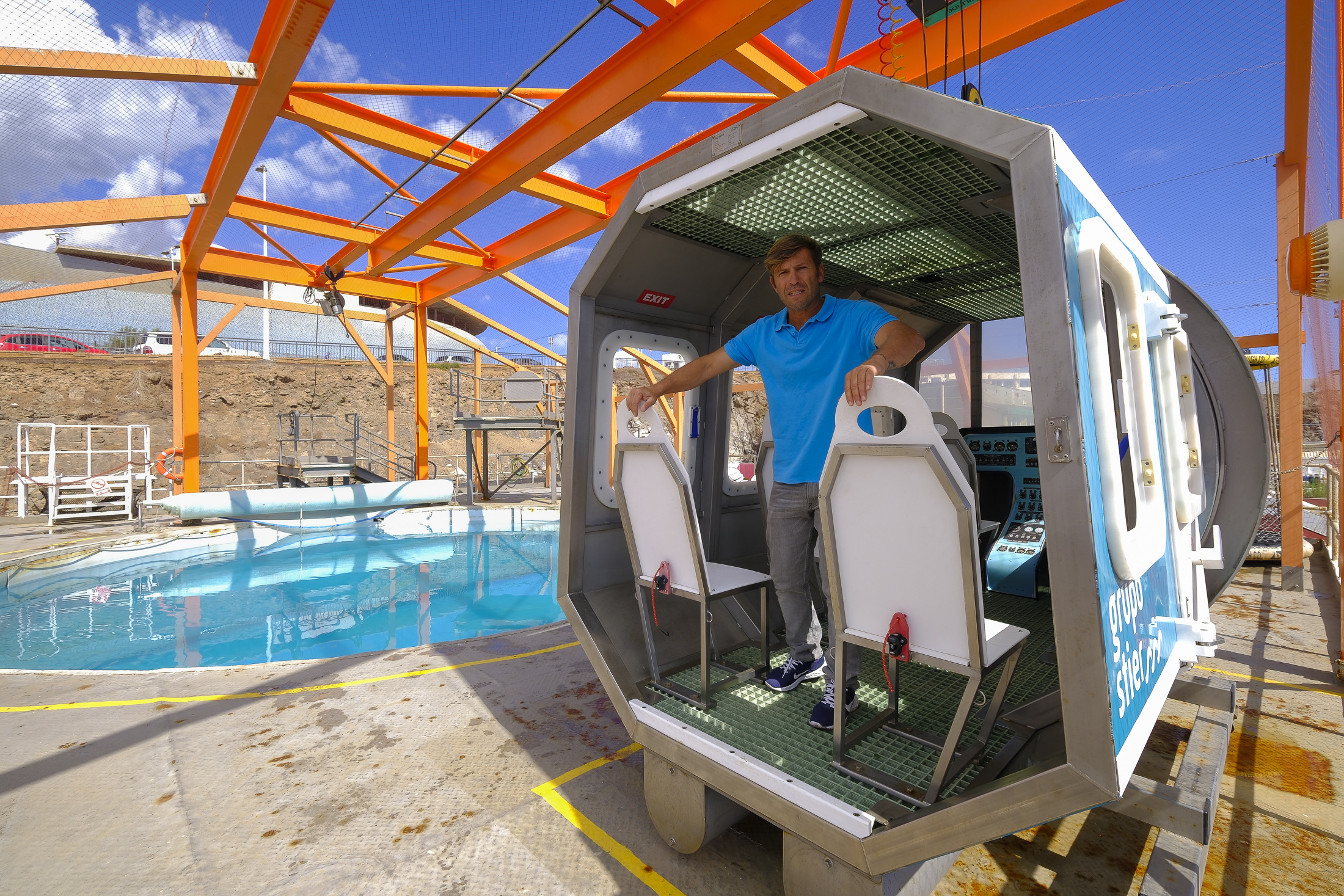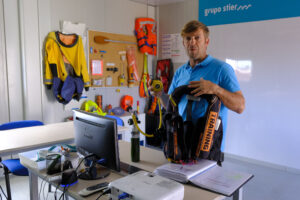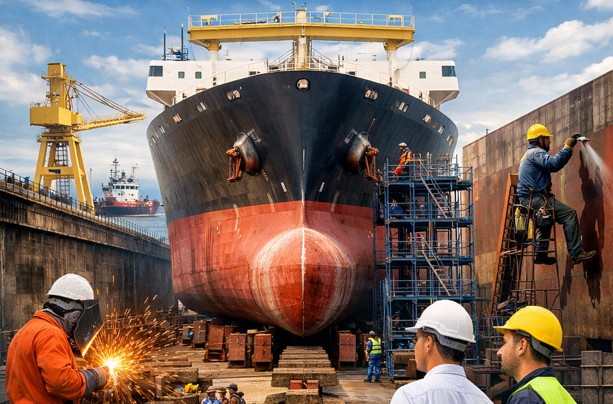
Freight Forwarder and Shipping Line: Key Players in Maritime Trade
In international trade, the freight forwarder and the shipping line play different yet highly complementary roles within the maritime logistics

By Esther Medina Álvarez
The oil and gas, offshore wind and port activity sectors are looking for labour and every week dozens of people are trained for this in the port of Taliarte, in Telde, with an almost absolute rate of employability
The port and maritime industry is looking for manpower and more and more people are opting for specific training to find a job opportunity in the Port of Las Palmas and other places in the world. And it is a safe bet; at least that is what Marcos Rodríguez, one of them, asserts.
After many years working as a lifeguard and sailing instructor, this 47 year old from Telden decided to make a change in his life and set his sights on the oil platforms that prospect off the west coast of Africa, offshore wind energy or other work linked to port activity.
With this objective in mind, a little over a year ago he took one of the courses offered at the Stier Group’s training centre in Taliarte, specifically the one that trains people to work in the oil sector, Opito, although in the end he did not have to leave the island to find work, as the company saw his potential and experience in him and hired him as a teacher. Now he is the one who teaches other people who are trying to find a job opportunity at sea. He is also continuing his education and training for the offshore wind industry. The third course Stier teaches, in the maritime sector, is not within his reach ‘because it requires a degree or having previously been a merchant seafarer,’ he explains.

High demand
“These jobs are in high demand now in Africa, especially in Mauritania and Senegal, where there are oil wells and 5,000 to 7,000 people are expected to be hired. The industry requires that 50% of those hired are local workers, but there is work as an engineer, welder, in the kitchen, in the office…. There are many branches,” adds Marcos Rodríguez.
Every week, he says, people from different countries come to take these courses, which are essential to apply for these positions because in the five modules that make up the courses, they learn subjects such as safety, first aid, fire-fighting, rescue and survival at sea, among others. The classes are taught in several languages. He, for example, teaches in Spanish and French. In this way, the demand of people from different countries is met.
Helicopter crash simulations
At the Taliarte facilities, they also take part in helicopter accident simulations to learn how to escape from the cabin in the event of an accident or how to evacuate a platform. ‘In the oil and gas industry, almost 80% of the staff travel to work in helicopters, which is why this training is so important,’ says the instructor, who adds that companies send their staff to the island for training. ‘If they don’t have the course, the first day they fly they have to put on an armband and sit next to someone who knows how, but by the second time they have to be trained’.
Rescue personnel who work in helicopters also attend these courses, ‘and now we have taken on a contract for the Canary Island forest firefighters,’ Marcos Rodríguez points out.
Highly remunerated
With his experience, this teldense recommends that those looking for a job should opt for this training. ‘It’s very lucrative and if you venture abroad you will have guaranteed work and very well paid’. In this sense, he explains that there are many jobs that involve working 28 days and resting for 28 days, ‘with salaries that can be around 3,000 or 4,000 euros’.
He also recalls that offshore wind power will soon be coming to the Canary Islands and will need people who are qualified to work in this industry.
The State renews the homologation of the courses given in Taliarte
The founder of the Stier Group, Ida Stier, recalls that Puertos del Estado has once again backed the training centre located in Taliarte and in January granted the extension of the approval to give courses in the handling of dangerous goods for quay and terminal operators and training courses for components of port organisations.
However, Stier lacks the support of institutions such as the Government of the Canary Islands.
‘One of the key values for the team that makes up the Stier Group is the positive result obtained year after year, with 80% of students immersed in the labour market, which strengthens the training integrated in the Stier Training Centre and demonstrates the reliability and effectiveness of the courses and training programmes that are given,’ says the entrepreneur who in 2024 received the institutional prize of the Port Awards.
‘The best reward we can have is the joy with which all those who train with us receive their recognition’, she adds.
This year, the centre is celebrating its 10th anniversary and will be holding an open day on 15 May.

In international trade, the freight forwarder and the shipping line play different yet highly complementary roles within the maritime logistics

A dry dock is a specially constructed facility used for the construction, inspection, repair, and maintenance of ships and vessels.